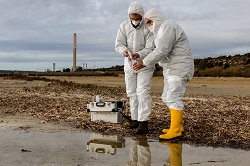Organic solutions for catalysing the chemical industry
Organocatalysis uses organic catalysts – consisting of carbon, hydrogen, sulphur and other non-metallic elements – to accelerate chemical reactions. This makes them more environmentally friendly than metal-based catalysts and offers a vast array of possible applications in the chemicals industry. Organocatalysts can help tackle one of the major challenges currently facing chemistry: the development of new synthetic strategies that allow increasingly rapid access to structural complexity and new molecular architectures. In recent years, organocatalysis has had significant results in the synthesis of natural products, the production of intermediates for pharmaceuticals and other structurally complex, biologically active compounds. The 'Applications of organocatalysis to supramolecular chemistry' (Supramolorganocat) project aimed to investigate and develop the application of organocatalytic chemistry to complex structure synthesis in supramolecular chemistry. After two years of investigation, this project, funded by the EU's Seventh Framework Programme (FP7), led to a number of useful results. These included the development of a number of synthetic routes towards macrocyclic analogues of imidazolidinone, proline and prolinol ether organocatalysts. In addition, the project worked to modify the design of the macrocycle so as to improve the reactivity of the macrocyclic organocatalyst.







